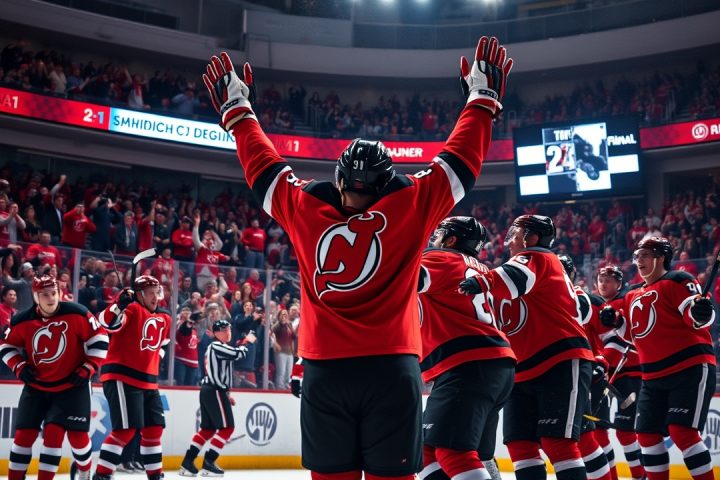Florida Panthers Clinch Stanley Cup Title
In a thrilling finale, the Florida Panthers clinched their second consecutive Stanley Cup title by overcoming the Edmonton Oilers in Game 6, solidifying their status in the NHL. This victory underscores a significant shift in the landscape of professional hockey, emphasizing that success can emerge from non-traditional markets, particularly in the Southern United States.
The Viability of Hockey in Warmer Climates
Historically, the league’s expansion into warmer climates raised skepticism. During a 1992 NHL Board of Governors meeting in Palm Beach, Florida, New York Times columnist George Vecsey voiced concerns over introducing teams in areas like Miami and Anaheim, questioning the viability of hockey in the Sun Belt. Yet, as time has shown, the presence of championship-caliber teams in these regions suggests that hockey is no longer confined to its northern roots.
With Florida’s recent win, the narrative has changed dramatically; since 1990, southern teams have won the Stanley Cup nine times — five of which occurred in the past six years. This trend starkly contrasts the worries held by Canadian sports journalists in the early ’90s, who feared the erosion of hockey’s Canadian identity due to American expansion.
Canadian Hockey Fans Face New Dilemmas
Before this latest triumph, some media voices such as Globe and Mail’s John Allemang anticipated that the NHL’s expansion would lead to a commercialization that threatens the sport’s core values. Back then, concerns about the franchise’s impact on the Canadian psyche were palpable, with many believing that the essence of hockey might be lost.
Yet now, as Florida revels in its victory, Canadian hockey fans face a more profound existential dilemma. The Stanley Cup has not graced a Canadian team for over three decades, fueling anxieties about the country’s status in the sport. While Canadians excel in other athletic arenas, the discomfort surrounding hockey’s decline remains sharp. The continuation of teams from the U.S., particularly in locations like Florida, evokes a sense of loss and frustration among Canadian supporters.
Oilers’ Performance and the Evolution of the NHL
The Oilers’ performance in the finals, marked by ineffective offensive strategies, questionable goaltending, and defensive mishaps, compounded these feelings. Their inability to secure a championship in the face of a formidable Panthers squad — known for its aggressive style and talented roster — serves as a poignant reminder of the evolving hockey narrative.
Interestingly, some argue that the NHL’s endeavor to appeal to a broader audience through its marketing initiatives and expansion plays a crucial role in enhancing the quality of hockey in places like Florida. The league’s adaptation has led to a faster, more entertaining game, arguably improving its overall appeal without sacrificing its Canadian roots.
Looking Forward
The ongoing evolution of the NHL, catalyzed by the expansion into southern markets, is a testament to the adaptability of the sport. As the hockey world observes Florida’s ascendance, the discussion shifts toward understanding what this new chapter means for Canada’s cherished game and its identity in an increasingly commercialized landscape.




